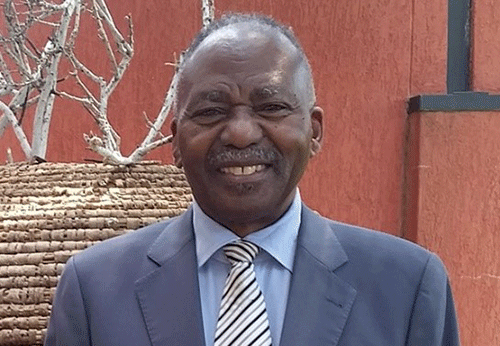Sacky Kadhikwa
WALVIS BAY – National Assembly Speaker and chairman of the Namibia National Cleaner Production and Sustainable Consumption Centre (NNCPC), Professor Peter Katjavivi says Namibia can leverage the circular economy concept to build a thriving industrial ecosystem.
He said such an ecosystem will drive the country towards an economy where industries will have industrial symbiosis and synergies.
Katjavivi made these remarks at a workshop in Walvis Bay recently, organised by Timo Palender, the Honorary Consul of Namibia to Tampere, Finland, Finnish partners Meriaura Invest Ltd and Tampere University, in collaboration with the Namibia Investment Promotion and Development Board (NIPDB) and municipalities of Walvis Bay and Swakopmund.
“The circular economy tackles climate change and other global challenges like biodiversity loss, waste and pollution by decoupling economic activity from the consumption of finite resources,” he said. He added that in many economies, materials are taken from earth, make products from them, and disposed as waste.
“The process is linear. In a circular economy, by contrast, we stop waste being produced in the first place. The circular economy is driven by design: Eliminate waste and pollution, circulate products and materials at their highest value,” the Speaker said. He added: “Throughout all sectors, we can apply the circular economy concept so as to create an industrial ecosystem meant to drive the country towards a circular economy where we have industrial symbiosis and synergies, facilitated by centres of excellence and eco-industrial parks”.
The workshop, held under the theme: ‘National Interest on Beneficiating Circular Economy’, focused on sharing Finnish and Namibian insights on the circular economy, and exploring business models between Namibian companies and the public sector. The circular system is one that eliminates waste, recycles materials and regenerates natural ecosystems.
Katjavivi said some of the main inputs into the Namibian economy include minerals, fisheries, agriculture, including livestock and crops. “As we may all be aware, Namibia is made up of 14 regions and each of these regions is endowed with a different set of natural resources that could be exploited and utilised to promote the circular economy concept in the country,” he said.
Some regions have minerals, some with marine resources, some with plants of medicinal value while others have game and livestock. He said such resources can create an industrial line with different products and benefits to the economy and households in that region and beyond. To get players involved, Katjavivi said there will be a need to create awareness and understanding, enhance capacity-building to increase the level of involvement with experts. and facilitation to those who want to get involved.
*Sakeus Kadhikwa is the public relations officer at the National Assembly.


